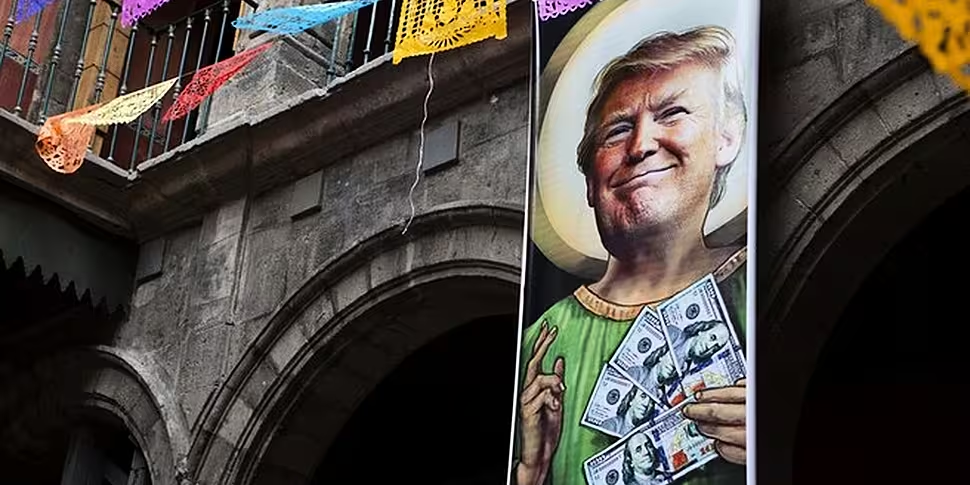Three images continue to linger at the end of a game-changing week..
The big-haired, hotel-owning magician, currently striding into Washington of course; a good-humoured but determined crowd of thousands marching in demonstration through a rural Irish town: and the boss of Ireland’s largest trade union, SIPTU leader Jack O’Connor.
Good old Jack: a rock of dependability and predictability in a world going mad. Thank God we can rely on our trade union leaders, most of whom are as conservative in nature as anyone ever elected to the White House, to bring a bit of stability to our lives through their time-honoured roles and scripts.

PA
Let’s paraphrase those scripts and strip them of the bland rhetoric in which they regularly come wrapped. They can be interpreted as follows:
"We, like every other organisation ultimately depend for our survival on making ends meet. Our membership stumps up the fees that cover our salaries, pay for the rent, heat and light on our offices and "motivate" us to carry the fight at every opportunity on their behalf - against those who conspire to oppress them.
"That fight is ostensibly about delivering the pay and conditions they deserve for the quality of the services they deliver and the disproportionate sacrifices they’ve made. In fact, it is every bit as much driven by the economic reality of falling trade union numbers and the pressure that places on us as trade union leaders not to lose more members or (God forbid) watch them move to a more aggressive competing union."
Is this an overly cynical interpretation? Perhaps. But what are we the vast majority of the non-unionised workforce to make of their current shape-throwing?
Mouths to feed
Strip all the fluff away and the leaderships of these organisations are, in essence, responding to internally-generated pressure to leverage their still powerful industrial clout and thereby seize a greater share of a finite national pie for themselves (or else...).
In other words, if those representing the guards can threaten to go to unprecedented lengths and force the Government to twist the language and meaning of existing agreements out of all coherent shape, then all others must similarly rush to the barricades with guns drawn.
It’s all about relevance in an increasingly non-unionised world; competition with others striving to be relevant; that and finances.
Why else - in the face of two giant threats to our economic recovery and our foreign direct investment business model through Brexit and a possible Trumpxit - would Jack O’Connor, no stick-waving extremist by nature, not only join the clamour for accelerated public-sector wage rises, but start his stopwatch ticking to further industrial relations mayhem unless he gets his way?
In a rational world he and his competing union leaders should be told to get back into their boxes, thank the stars for their members’ secure jobs and expensive pensions, the clear existing path to higher pay, and to wise up. Some chance...

iProtest
And that brings us to the third lingering image referenced earlier; the people of Athenry, Co Galway and environs, parading through their town in civic and civil protest at the ongoing delays to the planned Apple data centre out the road. A rare event of collective reasonableness in a country where self-interested or shrill sectoral interests can unreasonably frustrate the public good.
It’s not the civil servants nor the Workplace Commission officials across the table, nor the ministers who try to explain their positions through the media who fund public sector salaries and pensions.
Private sector taxpayers, who have little ultimate security in their jobs and scarcer pension benefits, are the ultimate paymasters of public sector salaries and pensions.
Perhaps, like the good people of Athenry, those taxpayers need to take to the streets of their cities, suburbs and towns to remind trade union leaders of that fact as the economic storm clouds grow darker on horizon.









